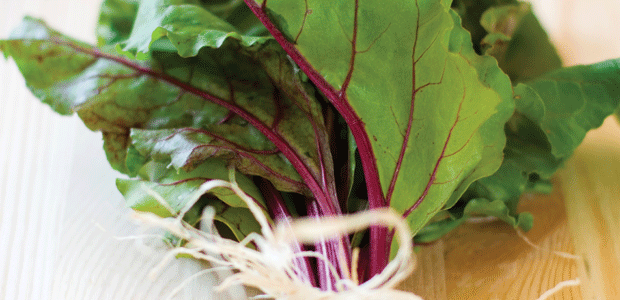Advertisement
Vitamin K
Keeping bones strong

Until recently, vitamin K didn’t get much attention. Those familiar with it were limited mostly to people taking blood thinners who had been told to avoid excess vitamin K.
That has certainly changed as we have begun to learn more and more about the potential benefits of this unsung nutritional hero. Now health food retailers and consumers are starting to gain an interest. Read on to learn the vitamin K basics and how this nutrient could protect your health down the road.
Vitamin K—what is it?
Vitamin K is a fat-soluble vitamin that can be found in the diet and is also made by bacteria. The naturally occurring forms of vitamin K are phylloquinone (K1), found in plants, and menaquinones (K2 or MK), which are mostly made by bacteria living in the intestine.
Vitamin K is very sensitive to heat and light and is easily destroyed by these conditions. Unfortunately, this could mean many people miss out on this vitamin simply because they overcook their food.
Deficiency—who’s at risk?
There is a risk of vitamin K deficiency with any condition that impairs fat absorption, including chronic pancreatic disease, liver disease, gastric bypass surgery, cystic fibrosis, or chronic diarrhea. Destruction of gut bacteria, as may be seen in chronic, long-term use of antibiotics, can also increase the risk of vitamin K deficiency.
What does vitamin K do?
Vitamin K has some important jobs in the body, the most well-studied of which are its roles in blood clotting and bone health.
Clotting
When we cut a finger or bump into something, the body must prevent excessive bleeding. One of the ways it does this is by forming a clot in the area of an injury, thickening the blood, ideally stopping the bleed. To do this, the body uses a series of blood-clotting proteins, some of which must be activated by vitamin K.
Some prescription drugs such as warfarin can interfere with the action of vitamin K, reducing the ability of the body to form clots. Often referred to as “blood thinners,” these drugs are prescribed to prevent dangerous clotting that can occur in people with health conditions such as thrombophlebitis or congestive heart failure. Since the effectiveness of such drugs can be reduced by vitamin K, those taking the medication are cautioned to avoid food high in vitamin K and to consult their health practitioner before adding any new supplement.
Interestingly, in healthy people who are not on blood thinners, increases in vitamin K intake do not seem to cause problems with blood clotting. This appears to be the case even in studies that have used high-dose supplements.
Bone building
Vitamin K is important for healthy bones. Although bone is high in minerals, particularly calcium, it is also a living tissue with multiple components and multiple nutritional needs.
Bone is a protein matrix upon which minerals are deposited. This is where vitamin K comes into play. It is believed that vitamin K is required to alter certain bone proteins so that minerals, such as calcium, can be deposited properly. Without vitamin K, all the calcium in the world may not allow you to build healthy bones.
Studies into the effects of vitamin K supplementation on bone have made some important findings. For example vitamins K2 and D3, taken together, may reduce bone loss. Researchers also concluded that, as we age, the amount of vitamin K we obtain through our diets may not be enough to keep the calcium in our bones. Another study found that high-dose K2 or K1 supplementation is associated with reduced risk of fractures in postmenopausal women.
Some studies into the impact of vitamin K on bone formation have found that it may also help to control the deposition of calcium in the arteries, where it can contribute to atherosclerosis, or hardening of the arteries. This may be especially important for women.
Calcium paradox
Researchers have long been curious about what they call the “calcium paradox.” It’s seen in postmenopausal women who are, on one hand, at risk of osteoporosis, the insufficient calcification of bone. At the same time they are at risk for calcification of the arteries, indicating excess or inappropriate calcium deposit. Vitamin K is likely an important part of solving this puzzle, helping to keep calcium in the right place—bone—and out of the wrong places—the arteries.
The potential for vitamin K to decrease calcification of the arteries is one way it could help reduce the risk of cardiovascular disease. In one study vitamin K1 supplementation was associated with a slowed rate of calcification of the coronary arteries that feed blood to the heart in men and women who already had calcification in these areas.
Levels of vitamin K that have been used in most studies are far above the 120 mcg currently allowed in over-the-counter products. Although higher doses are available by prescription, many health care practitioners are still hesitant to prescribe vitamin K unless there is a documented deficiency in the patient. This may change in time as more and more research shows the importance of vitamin K as well as the safety of higher dose supplementation.
You don’t need to wait to get more vitamin K in your diet. Simply load up on those leafy greens, broccoli, and beans.
|
Daily vitamin K requirements
—Source: Health Canada |
| Vitamin K—where to find it
Most dietary vitamin K is from plant sources, specifically leafy greens such as chard, kale, and collards, as well as vegetables in the brassica family, including broccoli, cabbage, Brussels sprouts, and bok choy. Soybeans, milk, cheese, and yogourt are also sources of vitamin K. |




